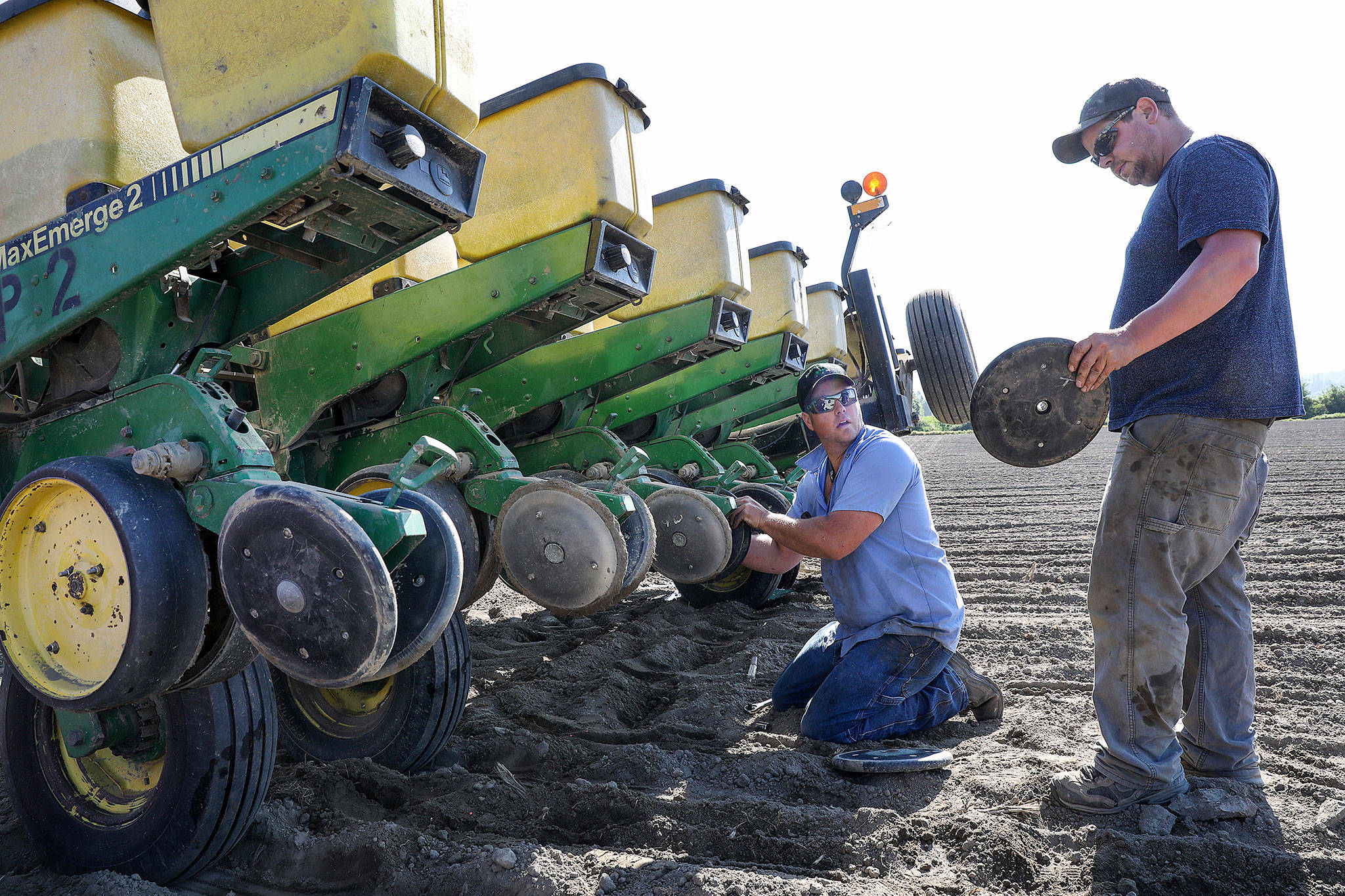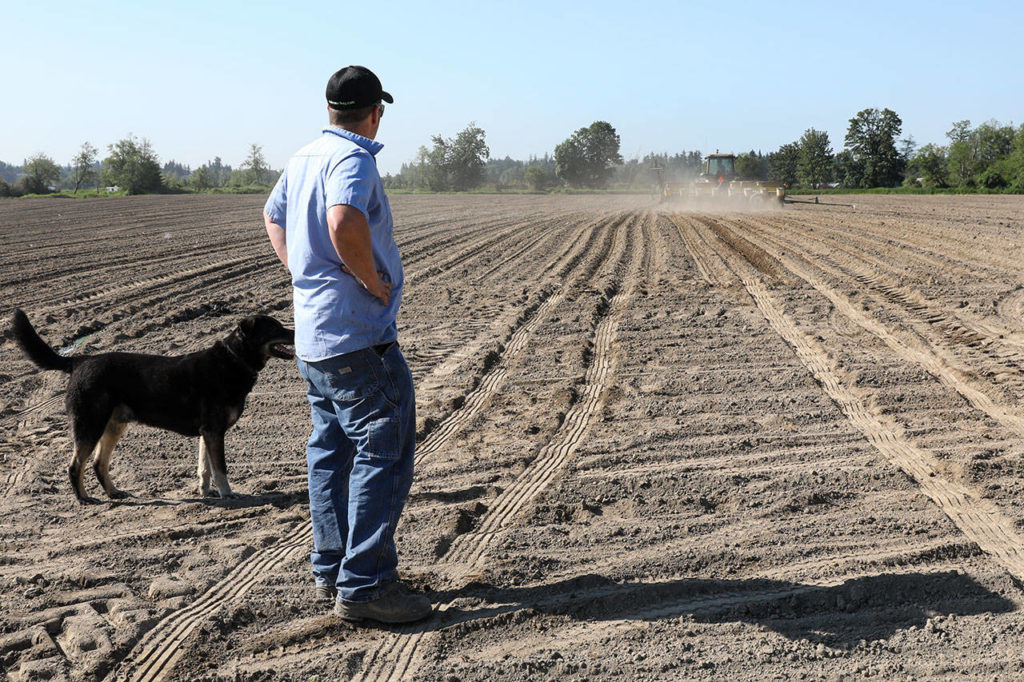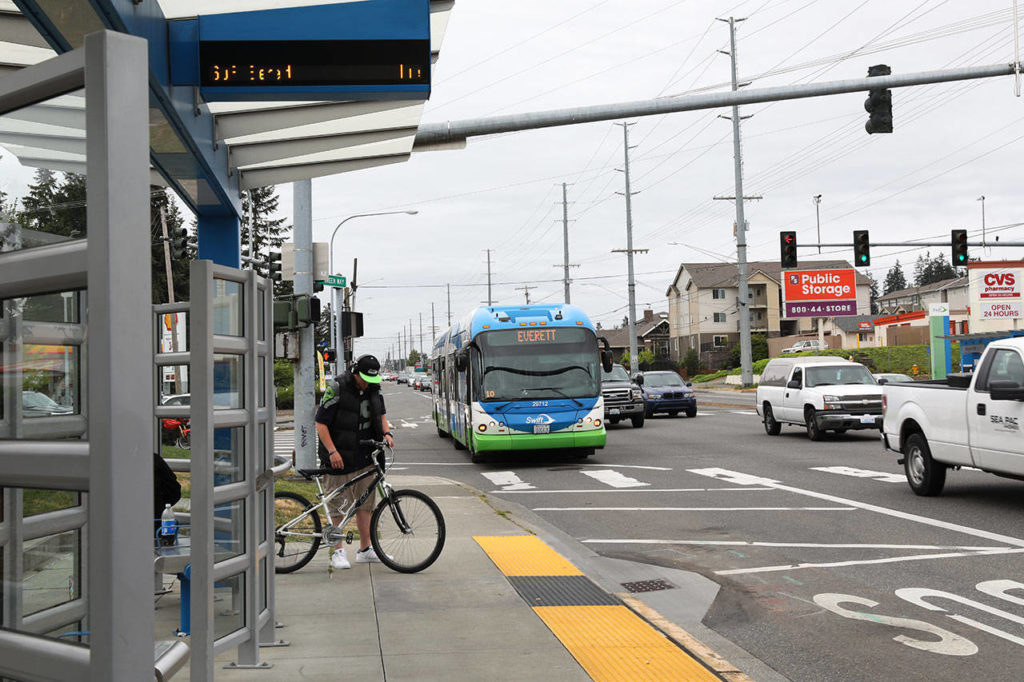ARLINGTON — Third-generation farmer Andrew Albert knew of a time when more than a dozen dairy farms dotted the roads to his family’s house and land in Arlington.
None remains as residential neighborhoods spread and agricultural land disappears.
“There’s a joke among farmers,” said Albert, 35. “If you want to start farming, you either have to marry into it or inherit it.”
The cost of land, plus equipment, is too high for many to enter the trade. In Snohomish County, new and even established farmers just can’t match the price developers are able to pay for rural lands.
A vote by the Snohomish County Council last week expanded a program that reduces the price of farmland by stripping the rights to further develop the land. This ensures the parcels remain farmland permanently. While the program has preserved acres of land, conservationists and farmers say more can be done to bolster the program that fights sprawl.
Like many farmers, Albert leases a vast majority of the land he works. But much of the land he rents is currently for sale, he said.
“I have a lot of insecurity in the land,” he said.
In 2016, an opportunity surfaced for Albert to purchase 140 acres of a yet-to-be-built subdivision at a price a farmer could afford.
The deal swapped 13 new homes for fields of wheat and hay.
The catch: No new houses could be built on the land.
The land was spared from development through the transfer of development rights. A county program preserves resource lands by allowing owners to sell just the development rights tied to the parcels.
These rights, usually for new multi-family housing units, are then purchased by developers to be used in areas better able to handle growth and greater density.
“The program reduces the value of the land to a price a farmer could afford,” Albert said.
It also lets farmers tap into some of the value of the land without surrendering it to development and nonagricultural uses.
Transferring of development rights is a win for everyone, said Nick Bratton, a policy director with the land conservation group Forterra.
“We don’t want to encourage growth in an area not appropriate for residential development,” Bratton said.
Last week the County Council broadened the program when it approved new development standards to a corridor along Highway 99. The changes allow more density, in the form of townhouses and apartments, by permitting taller buildings. The vote also added areas, known as receiving sites, where the development rights purchased from rural land can be used.
For DevCo Inc., the new receiving sites along Highway 99 are enabling a long envisioned low-income housing project that was on hold under the old rules. The company is planning to build 150 housing units for households that make 60 percent or less of area median income, while protecting acres of rural farmland.
“The increase in the density makes the project financially feasible to build,” said Jack Hunden, president of DevCo.
And, Hunden said, the ability to buy and use the development rights is allowing the company to build more affordable units.
DevCo is working with Forterra to buy the development rights for the project along Highway 99. The land conservation organization is looking to purchase them from farms in the Stillaguamish Valley. According to Forterra, the DevCo project alone will conserve more than 200 acres of farmland.
But a scarcity of areas where the purchased development rights can be used has limited the opportunity to contain sprawl, supporters of the program said.
“There’s no shortage of supply — we have identified enough willing landowners to conserve thousands of acres of farm and forest land (for) tomorrow if the demand was there,” Bratton said.
Linda Neunzig, an Arlington farmer and coordinator of the county’s agriculture project, said more receiving sites would help solve that problem.
She said this would provide developers, like DevCo, with more opportunities to use the developments rights — providing incentives to buy the rights.
“We have over 200,000 people coming to Snohomish County and as farmers we need to be able to feed the people,” Neunzig said. “We need to know that we can provide food security, and preserving our farmland does that.”
County Councilman Brian Sullivan said because growth should go in cities it was up to local jurisdictions to designate those receiving sites.
But that doesn’t happen, Sullivan said.
Only a few cities in the county have adopted a program that allows the transfer of development rights from rural to denser, urban areas.
“A lot of people who live in cities go to the city councils and mayors and say they don’t want more density,” he said, “and that pressure prevents that from happening.”
Lizz Giordano: 425-374-4165; egiordano@herald net.com. Twitter: @lizzgior.
Talk to us
> Give us your news tips.
> Send us a letter to the editor.
> More Herald contact information.




























